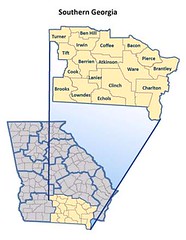
In addition to the Draft Constrained List for T-SPLOST
draft constrained list of T-SPLOST projects, which doesn’t even include dollar estimates,
this
longer report
contains details for each project.
And the cost to widen Old US 41 North from North Valdosta Road to
Union Road has gone up from
the previous estimate in June of
$8 million to $12 million in August, for a 50% increase!
I wonder if the County Commissioners know about this rapid cost inflation.
| Previous | Current | Difference | Increase% |
|---|
| PE |
$650,000 |
$800,000 |
$150,000 |
23% |
| ROW |
$850,000 |
$1,200,000 |
$350,000 |
41% |
| CST |
$6,500,000 |
$10,000,000 |
$3,500,000 |
54% |
| Total |
$8,000,000 |
$12,000,000 |
$4,000,000
| 50% |

Curious how when the components went up by odd amounts,
the total went up by exactly 50%.
It’s almost like the total was increased and then the components
were arranged to add up to that.
Also curious how the biggest increase, percentage (54%)
and total ($3,500,000) is for construction.
I could see how Rights of Way (ROW) acquisition costs might go up
because people might not want this boondoggle in their front yards,
but why was it so hard to estimate construction costs the first time?
And curious how that construction increase is a bit more than
Continue reading →







